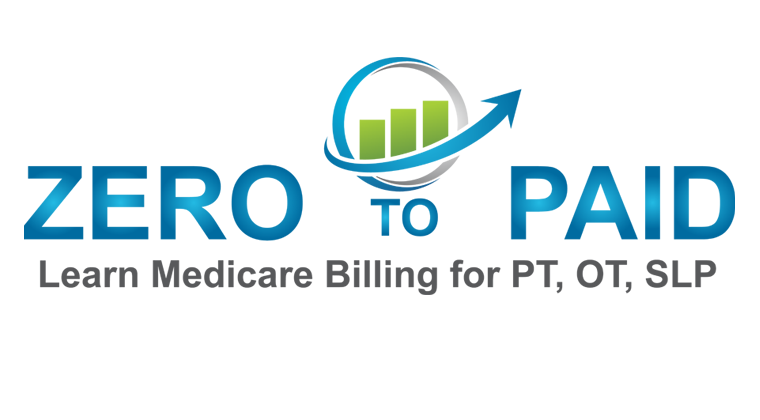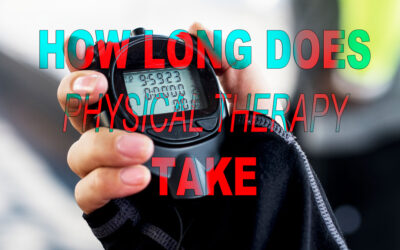1. The Crushing Debt
No surprise here, the debt associated with PT school is crushing the life out of many new graduate DPTs. The Student Loan Planner website published that the average physical therapist debt is approximately $96,000.
A 2020 APTA article suggests that survey results revealed an average of $116,000 in education-related debt among PTs and PTAs surveyed.
If a physical therapist is saddled with $1,000+ in monthly debt payments for the next 20 years and little chance of exceeding a low six-figure salary, it can be hard to ever get out from under that burden.

2. Missed Opportunity Cost (Lost)
Opportunity cost is a way to account for what you may have done if you didn’t spend the time going to school.
So assuming a DPT takes 4 years of undergraduate studies and 3 years of post-graduate school, you are investing 7 years in becoming a licensed doctor of physical therapy.
A conservative estimation of the missed opportunity cost could have been getting a job out of high school working in a physical therapy clinic as a therapy aide for $15/hr. Working 2,000 hours a year equates to a conservative $30,000 income.
Over 7 years and with no annual raises you would have accumulated $210,000, but more importantly, you would have gained 7 years of practical clinical knowledge. Plus, depending on where you worked, you may have learned how a private practice operates. You may have gained experience in billing and collections. May have had exposure to marketing and management. You may have even spent time directly with the owner to learn what needs to be done on a daily basis.
This is the kind of stuff that could never be learned in school.
So to compare
The person who went to school spent or borrowed $150,000 for tuition and developed none of the business skills while the person who worked for $15/hr learned a host of clinical and business skills while putting $210,000 in the bank. (Neither situation accounts for room and board.)
3. Golden Handcuffs
I call clinical skills the “golden handcuffs” because when a physical therapist becomes good at being a physical therapist, patients want to work with that therapist. This results in the therapist always working in the business instead of on the business.
The hardest thing for a good therapist to do is transition patients to another therapist. An even harder thing for a good therapist to do is to allow a different therapist to treat a previous patient differently.
If you haven’t read E-Myth Revisited by Michael Gerber, I highly recommend it. It is a story about a pie maker who wants to open a bakery, but she gets stuck making pies and quickly becomes too busy to work on her business.
4. Misalignment of Goals
I currently live in Ohio. If I wanted to travel to Indiana I should travel west, but technically I could also get to Indiana if I travel east and circumnavigate the globe.
Misalignment of goals happens when a person wants a specific outcome but takes action toward a different outcome. For example, if my goal is financial independence and security for myself and my family, my first priority should be to achieve that. If my chosen vehicle to achieve that goal is a physical therapy practice, then I should buy or start a physical therapy practice.
After I have achieved those goals, only then should I consider becoming a physical therapist. Because only then would I have the financial security and independence to focus on my passion.
5. The New Economy
It should be no surprise that we are entering a new economy. The traditional model of “get a degree and find a job with a pension” no longer exists. Professionals no longer work for the same corporate or governmental employer for 40-years before retiring with a pension and social security.
In the new economy, individuals are more mobile. They are changing jobs more quickly and developing new skills on the fly.
The gig economy is one in which a person can work when he wants to work and then not work when he wants to do other things.
Technology and innovation are driving new automation that makes a lot of the mindless labor jobs irrelevant. The introduction of artificial intelligence is changing the professional landscape so quickly that a student graduating high school today has no idea what jobs will be available upon graduation in 4 or 7 years.
Learning for the old economy will not help you enter and thrive in the new economy.
Conventional doctor of physical therapy programs are teaching the skills a therapist needs today, but a student therapist will need to learn new skills in 7 years.
1. When You Should Go To PT School
The one time you should go to PT School is when you have all of your financial house in order. Maybe you have already started a physical therapy business. Or perhaps you started or purchased a different business that is stable and consistently paying your bills.
Going to PT School when you have all of your bills paid and you can focus on your passion to learn physical therapy is like the best time.
Otherwise, you may be borrowing to buy a degree that will earn you less money than it costs.
My Story
I started my personal training studio in Sarasota, FL in 2001. I was not a licensed physical therapist at that time. I had a bachelor’s degree in Kinesiology and my strength and conditioning specialist certification.
By 2002 I wanted to turn my personal training studio into a physical therapy clinic. I was not allowed to own the PT Clinic if it was to be contracted with Medicare, so I leased space to and worked for a licensed physical therapist who would own 100% of the business. The clinic was leasing space within my personal training studio.
By 2003 we expanded to 3 locations and I went back to school for a master’s of physical therapy degree.
By 2006 my partner and I decided to get married and moved to Ohio where we opened 2 more locations for a total of 5 clinics across two states.
Fast forward to today, we own two clinic locations here in Ohio, we are married with 4 amazing boys, we sold one clinic location and closed the other two.
We have time freedom and financial freedom to treat patients the way we believe patients deserve to be treated and we have a business that provides financial security.
Summary and Key Takeaways
Thanks to my choice to start a business first and then go to PT school with the income of my business paying the way I have been able to achieve time freedom, financial security, and the ability to protect my passion for therapy.
If your goal is financial security, then investing 7 years and $150,000 to get a job may not make sense for you. Especially if you have to borrow the money to do it.
Who is allowed to certify a Medicare physical therapy plan of care? 2022
Which providers are allowed to certify a Medicare physical therapy plan of care? There are several types of healthcare providers that are allowed to certify a Medicare physical therapy plan of care. Medical Doctor Doctor of Osteopathic Medicine Nurse Practitioner...
How Long Do Physical Therapy Sessions Take? 15, 30, or 60 Min?
My mom asked me "How long do physical therapy sessions take?" not because she was so eager to go, but rather because she wanted to get it over with.https://youtu.be/jwneMxD1jKsThe average physical therapy session at my clinic, Total Therapy Solutions, will last...
7 TIPS for What to Wear to Physical Therapy
Choosing What to Wear to Physical Therapy Depends on What is Being Treated Physical therapy is a broad profession and encompasses the treatment of many different conditions. A patient receiving treatment for low back pain might dress very differently than a patient...


